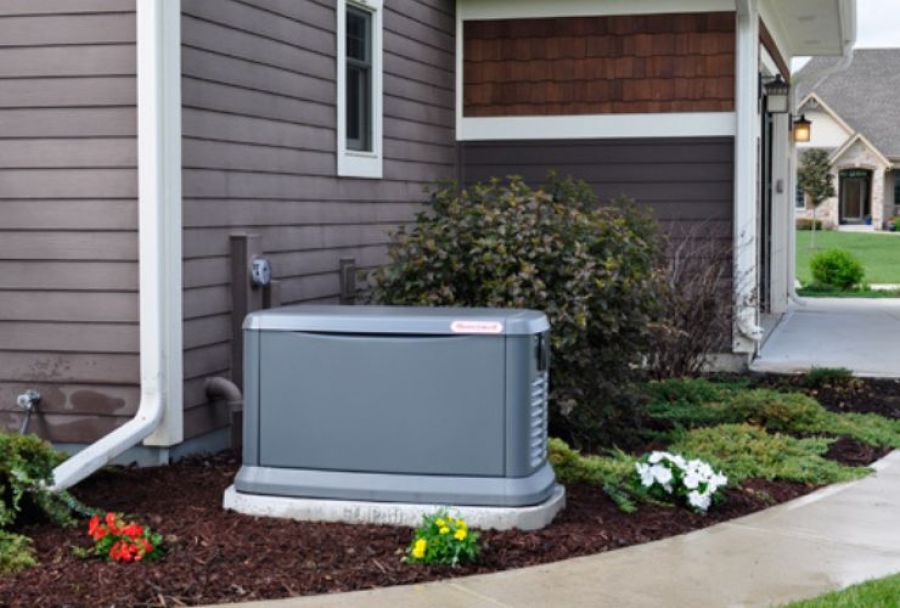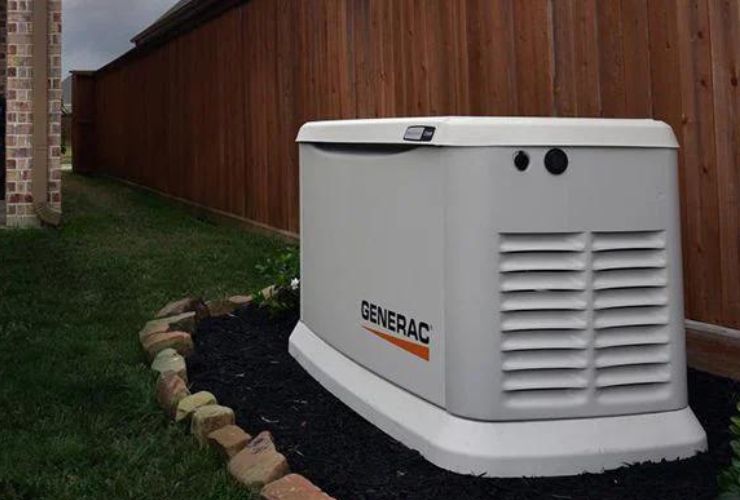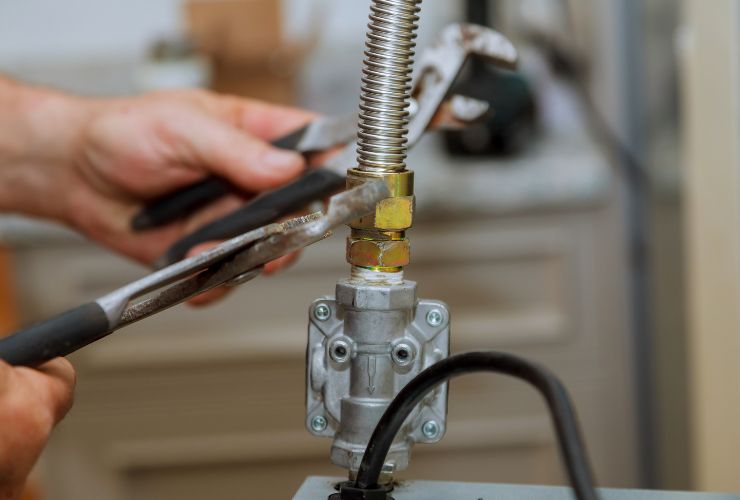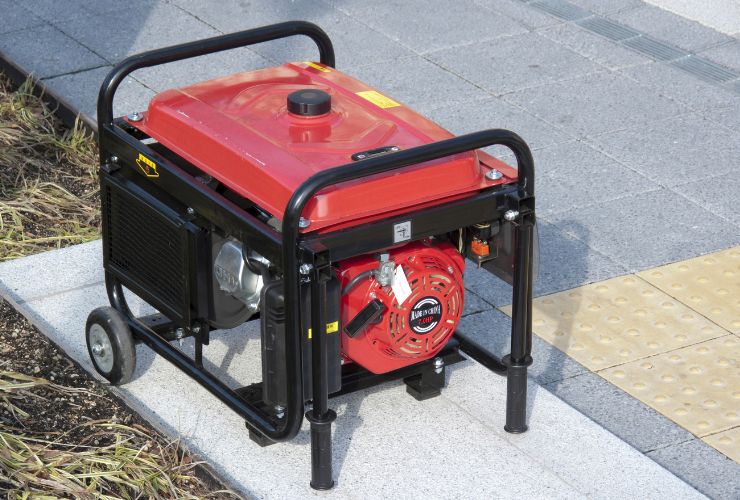Emergency Preparedness: How Backup Generators Can Safeguard Your Home

TLDR: Backup generators are crucial for emergency preparedness, ensuring safety, comfort, and essential power during outages caused by natural disasters or electrical grid failures. They power safety systems, maintain HVAC and food preservation, operate sump pumps, enable communication, and work automatically through an Automatic Transfer Switch (ATS). Backup generators use various fuel sources, such as natural gas, propane, diesel, or gasoline. When choosing between standby and portable generators, consider your specific needs and budget.
When it comes to safeguarding your home during unexpected power outages, backup generators play a pivotal role in ensuring your family’s safety and comfort. From extreme weather events to electrical grid failures, emergencies can strike at any time, leaving you without essential power. In this blog, we’ll explore the importance of emergency preparedness, how backup generators can be your reliable lifeline when the lights go out, and various aspects of these vital systems.
The Role of Backup Generators in Emergency Preparedness
Emergencies can come in various forms, ranging from natural disasters like hurricanes, earthquakes, and severe storms to man-made events such as electrical grid failures or accidents. During these challenging times, access to electricity can mean the difference between staying safe and comfortable or facing significant inconveniences and risks.
- Safety: Backup generators ensure that critical safety systems remain operational. They keep essential devices like smoke detectors, security systems, and medical equipment powered, reducing the risk of accidents and health-related issues during power outages.
- Comfort: Generators provide a consistent source of electricity to keep your HVAC system running, maintaining a comfortable temperature in your home. This is especially crucial in extreme weather conditions, whether it’s scorching summer heat or freezing winter cold.
- Food Preservation: A power outage can lead to the spoilage of perishable food items in your refrigerator and freezer. With a backup generator, you can keep your food fresh, preventing wastage and ensuring a continuous food supply for your family.
- Sump Pump Operation: If your home has a sump pump, it’s vital for preventing basement flooding. A backup generator ensures your sump pump continues to work even during prolonged outages, protecting your home from water damage.
- Communication: In today’s connected world, communication is key during emergencies. Backup generators keep your communication devices, such as phones, radios, and the internet, functional, allowing you to stay informed and connected to emergency services and loved ones.
How Backup Generators Work
Backup generators operate automatically, sensing when there’s a power outage and activating within seconds to restore electricity to your home. They are typically fueled by propane, natural gas, or diesel, providing a reliable source of power. These generators are installed outside your home and are connected to your electrical system through an automatic transfer switch (ATS).
When the generator detects a power outage, the ATS disconnects your home from the utility grid and activates the generator. It then transfers the electrical load to the generator, providing power to your home’s circuits. When utility power is restored, the ATS switches back to the grid and shuts down the generator, ensuring a seamless transition.
Automatic Transfer Switch (ATS)
The Automatic Transfer Switch (ATS) is a crucial component of standby generator systems. It serves as the bridge between your home’s electrical system and the generator. When the ATS detects a power outage, it automatically switches your home’s electrical load from the utility grid to the generator. Once utility power is restored, it seamlessly transfers the load back to the grid and shuts down the generator.
The ATS ensures a smooth and safe transition between power sources, eliminating the need for manual intervention and preventing electrical backfeeding, which can be dangerous to utility workers.
Fuel Sources for Backup Generators
Backup generators use various fuel sources to generate electricity:
- Natural Gas: Natural gas generators are connected to your home’s gas supply, providing a continuous and cost-effective source of fuel. They are convenient because there’s no need to refuel or store fuel on-site.
- Propane: Propane generators use propane stored in a tank on your property. They offer reliable power and are suitable for areas where natural gas is unavailable.
- Diesel: Diesel generators are known for their durability and are often used in commercial applications. They require a fuel storage tank and can provide substantial power.
- Gasoline: Portable generators commonly run on gasoline. While they are convenient for temporary use, they may not be the best choice for long-term backup power due to fuel storage and maintenance considerations.
Standby vs. Portable Generators
Standby and portable generators serve different purposes:
- Standby Generators: These are permanently installed outside your home and are connected to your electrical system. They operate automatically and provide seamless backup power during outages. Standby generators are suitable for whole-house backup and offer higher capacity.
- Portable Generators: Portable generators are smaller, mobile units that you can move to different locations as needed. They require manual startup and connection to essential appliances using extension cords. While they are more affordable, they are typically designed for limited power needs.
When choosing between standby and portable generators, consider your specific requirements, budget, and the level of convenience and reliability you need during an outage.
Questions & Answers About Backup Generators
What size generator do I need for my home?
The size of the generator you need depends on your home’s power requirements. A professional electrician can perform a load analysis to determine the appropriate generator size based on your specific needs.
How often should I maintain my backup generator?
Regular maintenance is crucial to ensure your generator operates reliably during emergencies. It’s recommended to have your generator serviced annually by a qualified technician.
Can I power my entire home with a backup generator?
Backup generators come in various sizes, and their capacity varies. You can choose to power your entire home or select essential circuits. Your electrician can help you design a backup power system that suits your needs.
Are backup generators noisy?
Modern backup generators are designed to operate quietly. Their noise levels are comparable to typical outdoor HVAC units. Some generators also feature sound-dampening technology for minimal disruption.
Conclusion
Emergency preparedness is a responsibility we all share, and having a backup generator is a practical step toward ensuring your family’s safety and comfort during power outages. With their automatic operation and reliable performance, backup generators are a valuable addition to any home, providing peace of mind when you need it most. Don’t wait until the next outage occurs; contact a professional electrician today to discuss your backup generator options and take the first step toward a more secure and resilient home.
On standby waiting to help you with a FREE Quote right now!
Recent Posts
CATEGORIES








